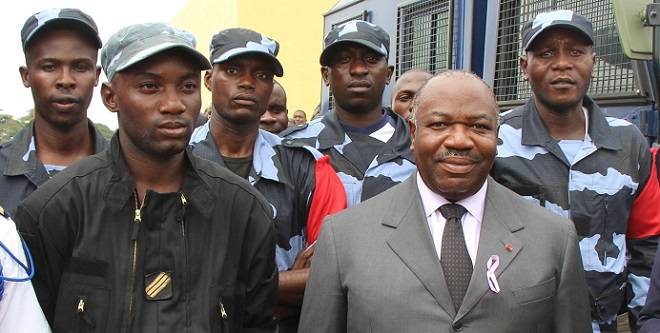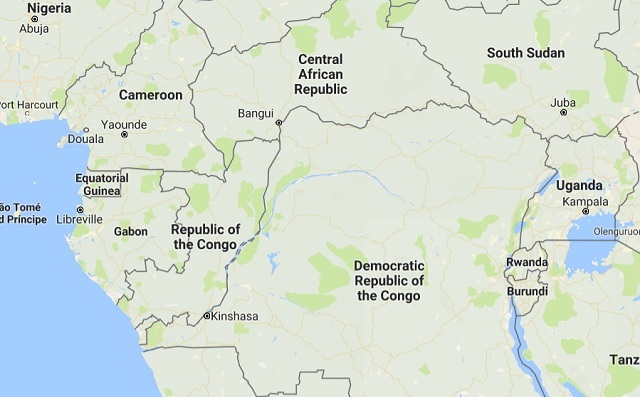
Libreville, Gabon | AFP |
Ali Bongo, whose re-election victory was upheld by Gabon’s constitutional court Saturday, has long sought to emerge from the shadow of his father, Omar Bongo, who ruled the country for 41 years until his death in 2009.
Bongo, a stockily-built 57-year-old, is variously known by his initials ABO, Ali B and the less flattering “Monsieur Fils” — “Mr. Son”.
The last nickname has always irked him the most: Bongo has long insisted he owes his position to his own merits rather than to nepotism.
Gabon is sitting on oil, minerals and tropical timber, and its per-capita national income is four times greater than that of most sub-Saharan nations.
But a third of the population of 1.8 million live below the poverty line — a gap that has fuelled resentment towards a regime notorious for corruption.

Mindful of that mood, Ali Bongo campaigned in the August 27 elections on the slogan “Let’s change together.”
He managed to shed his reputation as a dry, reticent man, coming to life on the campaign trail by cracking jokes and going head-to-head on stage with hired rap groups.
– From Alain to Ali –
He was born Alain Bernard Bongo on February 9, 1959, in the Congolese city of Brazzaville, which at the time was still part of France’s rapidly shrinking colonial empire.
Bongo has strenuously denied his detractors’ allegations that he was actually an adopted son born in Nigeria, and therefore ineligible to run for president in Gabon.
His father, who came to power in 1967 upon the death of Gabon’s first post-independence leader, was serving in the French armed forces at the time of Ali’s birth.
His mother, Patience Dabany, was a singer, who went on to serve as first lady of Gabon for almost 20 years. She returned to pursuing a musical career in the United States after her divorce from Omar Bongo.
The young Bongo attended some of Brazzaville’s top schools and went on to study law in France.
But his prestigious education did not extend to learning any of his country’s local languages, a lapse that many have held against him.
From a young age, Bongo worked as a close aide to his father, travelling the world and building up extensive contacts in the US and in the Arab world.
Like his father, Bongo junior converted to Islam and took an Arabic first name in the 1970s, at a time when Arab oil-producing nations were flexing their economic muscle.
In August 1989, he was appointed foreign minister at just 30, but had to step down two years later when a new constitution stipulated that cabinet members had to be at least 35.
He was back in government by 1999, at the head of the defence ministry, where he remained until shortly before the start of the election campaign caused by the death of his father in 2009.
Bongo is one of two of the late president’s children who have occupied key posts — his elder sister Pascaline served as her father’s chief-of-staff from 1994 until his death.
Omar Bongo liked to claim that the two children who worked for him were only there because of their talent, and not due to nepotism.
Well before Omar Bongo’s protracted illness and death, it became clear that his son had his eye on the presidency, despite some opposition in the ruling Gabonese Democratic Party (PDG), and the shadow of corruption left by his father.
The elder Bongo had been under investigation in France over the ownership of luxury properties, including apartments in Paris and the Cote d’Azur resort of Nice.
 The Independent Uganda: You get the Truth we Pay the Price
The Independent Uganda: You get the Truth we Pay the Price



